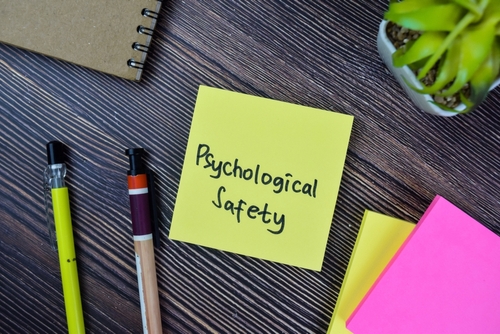The concept of psychological safety has gained paramount importance in the modern workforce. It’s the bedrock upon which trust, engagement, and productivity thrive. Recent research from Wiley has shed light on some concerning disparities in this area, particularly between individual contributors and top-tier executives.
Disparities in Perceived Safety: Wiley Report Insights
According to the Wiley Workplace Intelligence report, there’s a stark difference in how safe employees feel about taking risks based on their positions in the company hierarchy.
A mere 53% of individual contributors felt safe taking risks at their organizations, contrasting the 76% of executives who felt the same. This gap is concerning and suggests a potential disconnect in perceptions and experiences between different levels of employees.
Psychological Safety
Psychological safety, a term first introduced by Harvard Business School Professor Amy Edmondson, is described as an environment where individuals can freely express ideas, voice concerns, take risks, and admit mistakes without the looming fear of repercussions. It’s a cornerstone for fostering a healthy workplace atmosphere.
Dr. Mark Scullard, senior director of product innovation at Wiley, emphasized its significance, stating, “Psychological safety has become increasingly important in recent years with the shift to hybrid and remote work.” He further suggested that to bridge these evident gaps, companies should “equip all employees with the skills for effective relationships, better communication, understanding, trust, and teamwork.”
Insights on Comfort Levels in Addressing Tough Issues
Wiley’s report unveiled other intriguing insights that have implications for business and people leaders. For instance, while individual contributors and executives both felt less comfortable bringing up tough issues at work, middle management seemed more at ease doing so. In addition, supervisors felt the least secure about the potential for their work to be deliberately undermined by team members.
Another noteworthy finding was the high level of psychological safety felt by executives, with a whopping 93% feeling mostly or completely psychologically safe! In contrast, individual contributors and managers reported lower levels, indicating a potential disparity in the workplace experiences of different roles.
While the corporate world has made strides in recognizing the importance of psychological safety, there’s still much work to be done. Addressing these disparities is not only a matter of fairness but also a business imperative. After all, a workplace where all employees, regardless of their roles, feel psychologically safe is one that’s primed for innovation, collaboration, and success.
Lin Grensing-Pophal is a Contributing Editor at HR Daily Advisor.

